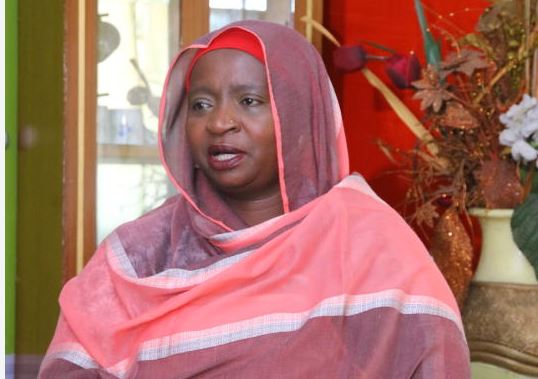×
The Standard e-Paper
Informed Minds Prefer The Standard

Kenya Red Cross Secretary General Dr. Asha Mohammed. [David Gichuru, Standard]
If you walked into Kibra and found a group of women in gurbaba, the traditional Nubian dress, it might not cross your mind that one of them could be Dr Asha Mohamed, the secretary-general of Kenya Red Cross Society. But this is a place you would find her regularly. This for her, is home.